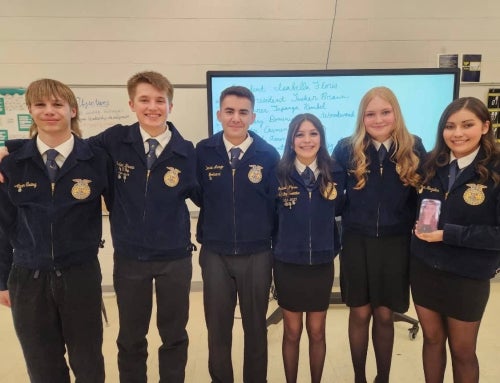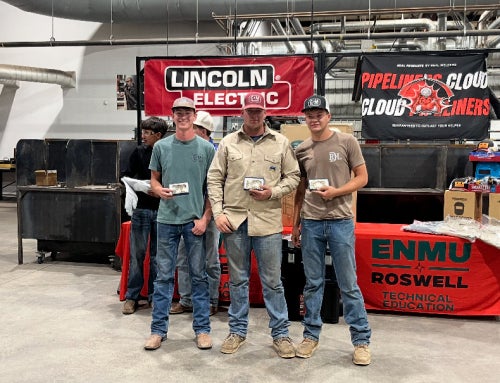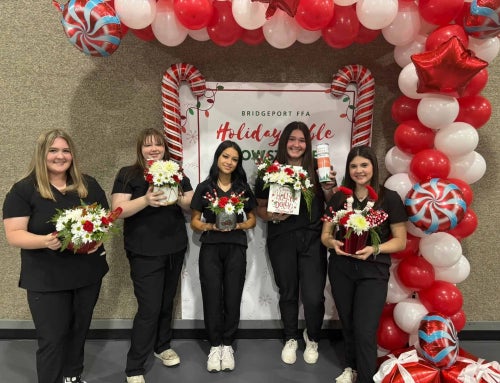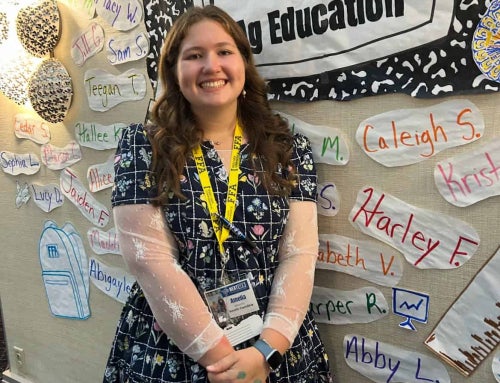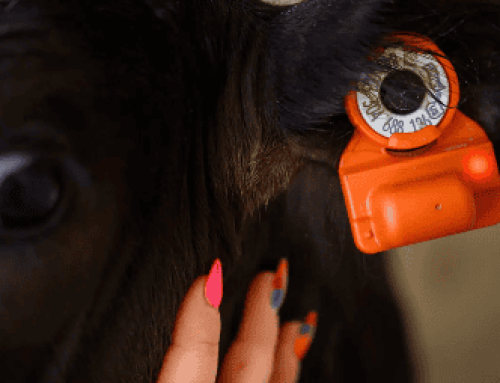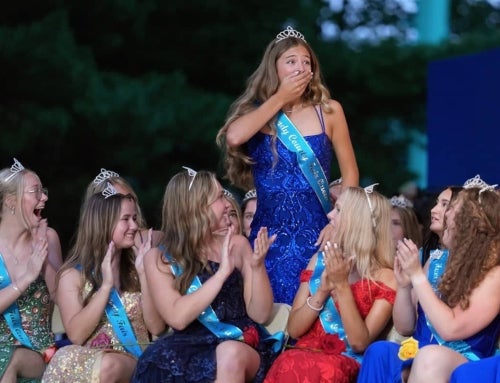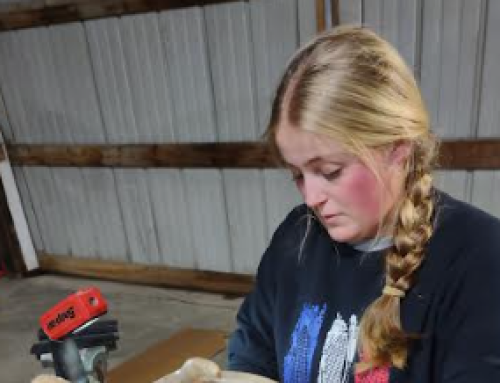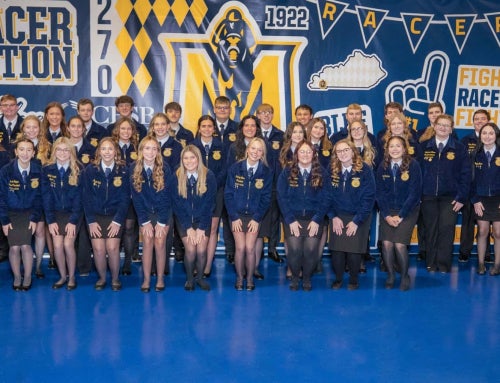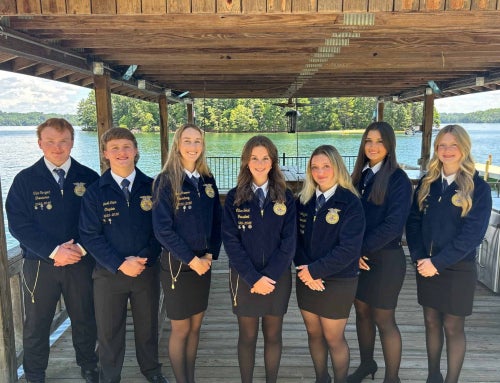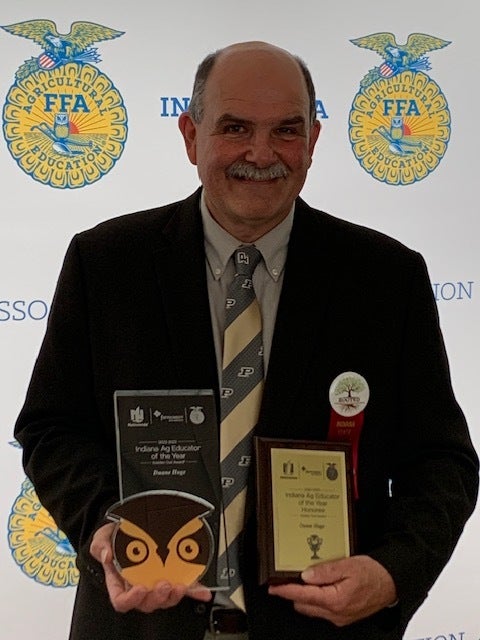
Meet Mr. Duane Huge
For more than four decades, Duane Huge has had a profound impact on agricultural education. From growing up on a 1,200-acre family farm in Monticello, Ind., to mentoring future agricultural educators, Huge has dedicated his life to shaping the next generation of leaders in agriculture.
His journey from an FFA member to a respected educator and mentor has inspired countless students and teachers alike, making a lasting mark on the agriculture community.
Half a Mile, a World of Difference
Huge grew up on a 1,200-acre farm in Monticello, Ind., where his passion for agriculture took root early. He joined the National FFA Organization as soon as he was eligible, eager to immerse himself in the world of agricultural education.
In seventh grade, Huge began attending a school that offered FFA, further reinforcing his desire to pursue a career in agriculture. However, after that school year, his family moved just half a mile down the highway — crossing into a different school district that didn’t offer agriculture classes or FFA. Although the move was small in distance, it had a big impact on his opportunities.
Throughout his freshman and sophomore years, Huge knew agriculture was where his future lay. “I wanted to be in FFA and take agriculture classes,” he says. With a strong sense of purpose, he made the case to return to his original school district — demonstrating that the agriculture program was essential for his future career goals.
His determination paid off. Huge rejoined his original school and participated in agriculture courses and the FFA chapter during his junior and senior years. It was during this time he realized the profound influence of his agriculture teacher.
“My agriculture teacher had a big influence on my decision to go into agricultural education,” Huge says. “The role model as an agriculture teacher showed me what I wanted to be.”
The positive mentorship he received helped shape his career path, solidifying his goal to inspire future generations through agricultural education.
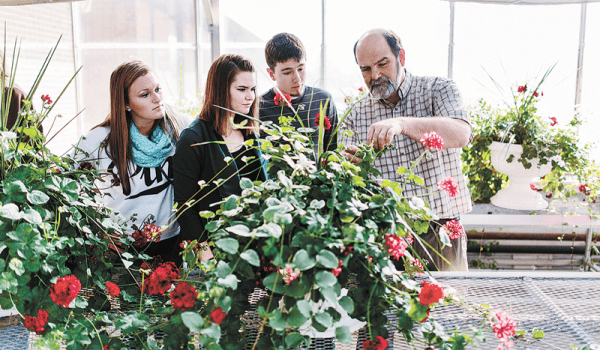
The Influence of a Blue Jacket
After realizing his passion for both teaching and agriculture, Huge knew agricultural education was the perfect path. “I always had an interest in teaching and agriculture,” he says. “Let’s take the two things I really enjoy and blend them together.”
With that goal in mind, Huge chose to attend Purdue University in West Lafayette, Ind., to major in agricultural education. After graduating from Purdue, Huge began his teaching career at Cloverdale High School. At the time, the agriculture program was on the verge of being phased out. Huge stepped in and helped revitalize it — transforming the chapter into a thriving, three-teacher agriculture program throughout the course of his 20-year tenure.
During his time at Cloverdale, Huge created some of his fondest FFA memories. One highlight was coaching a student who became one of Cloverdale’s few Indiana FFA state officers in nearly four decades. That same student also went on to win the National FFA Prepared Public Speaking Leadership Development Event — becoming only the second national winner from Indiana in the past 40 years.
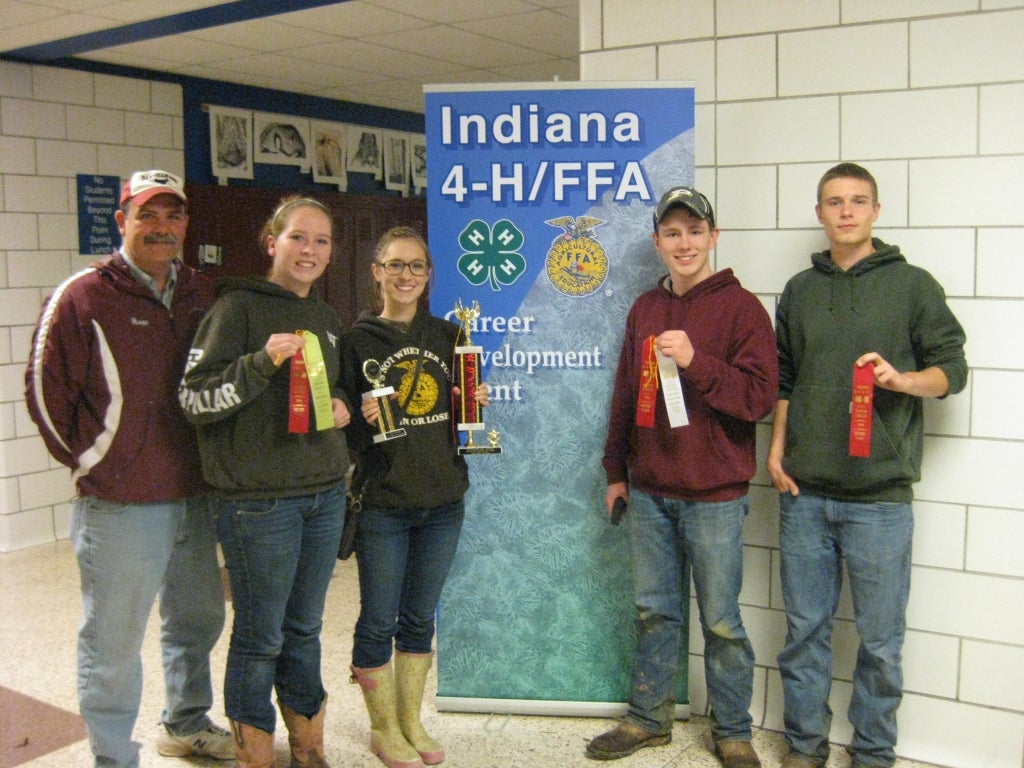
Huge’s Journey as an Educator
After 20 years at Cloverdale High School, Huge accepted a new position at Danville High School. He spent the next 18 years there, continuing to shape the lives of students and grow the agriculture program. In the summer of 2023, he officially retired from classroom teaching, closing out a remarkable in-classroom career that spanned nearly four decades.
Among his fondest memories as a teacher and FFA advisor were coaching soil judging career development events and mentoring the next generation of agriculture educators. Throughout the course of his career, he guided 12 student teachers, helping them take their first steps into the classroom and planting the seeds for his continued impact beyond retirement.
Outside of his FFA activities, Huge is proud of the number of former students who have gone on to major in agriculture and work in agriculture-related jobs across various states and universities. Even more rewarding for him is knowing several of his former students followed in his footsteps to become agricultural educators themselves, continuing the cycle of influence and inspiration.
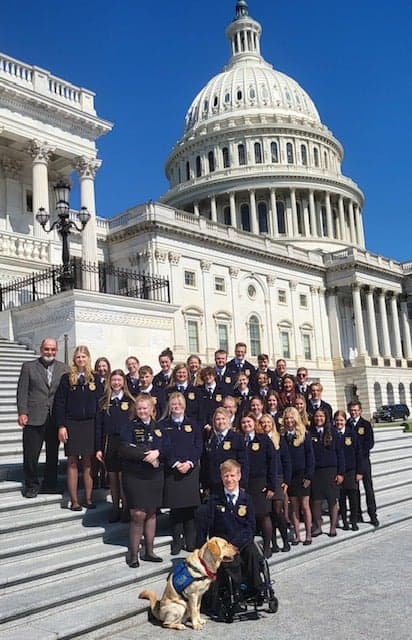
A New Chapter
After retiring in 2023, Huge didn’t step away from the agricultural education field. Instead, he joined the agricultural education and Indiana FFA Association staff to help revitalize the teacher mentor program, Mentoring Indiana – Beginning Agriculture Teachers (MI-BAT).
Huge worked to rebuild the program and continue making a positive impact. The program had been folded for six to seven years due to lack of funding, but with the arrival of the Lilly Endowment Grant from National FFA, Huge helped facilitate and strengthen agricultural education initiatives across Indiana.
In his new role as coordinator, Huge oversees the teacher mentor program, ensuring new agriculture educators receive the support and guidance they need to succeed. Through this initiative, he continues to shape the future of agricultural education in the state.
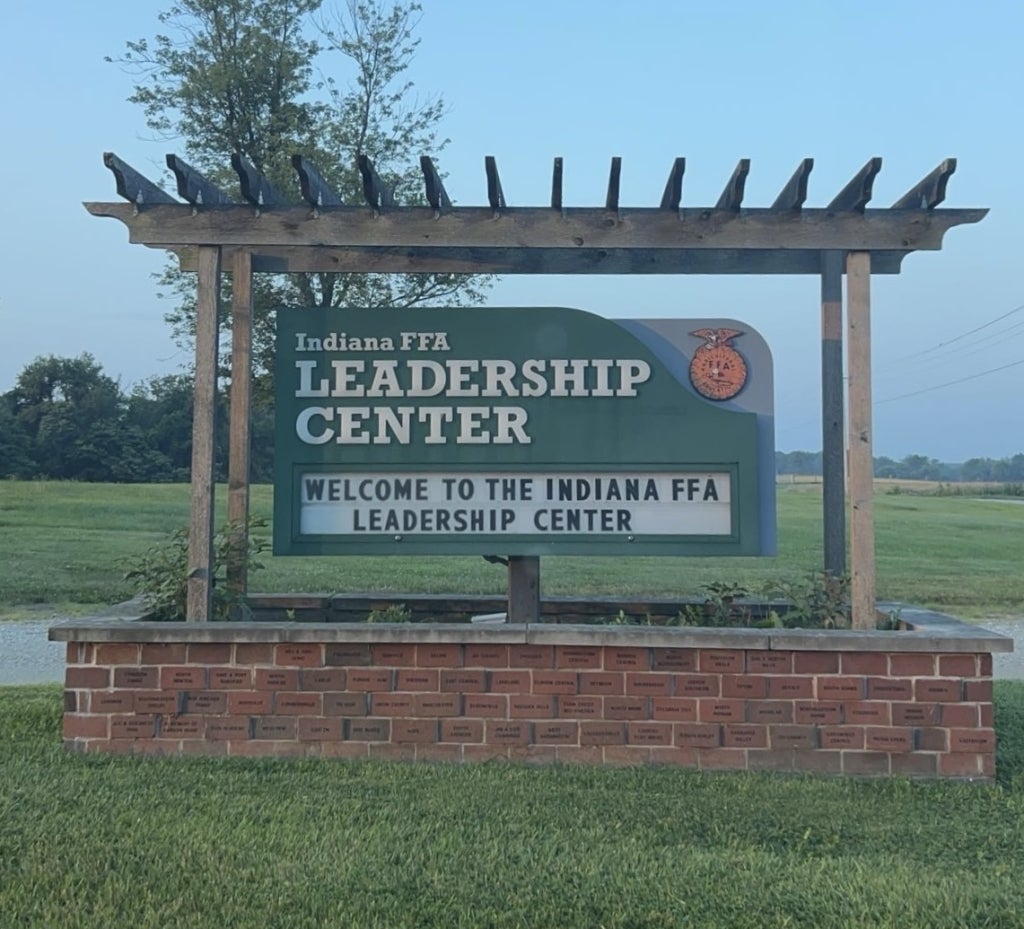
Mentoring the Next Generation of Agriculture Teachers
Huge’s role with the MI-BAT program is dedicated to supporting new agriculture educators across Indiana. The program is open to teachers in their first year of teaching agriculture. Additionally, teachers with seven or more years of experience can either be nominated or nominate themselves to serve as mentor teachers.
Huge works to recruit experienced teachers for the program and pairs them with new educators. He starts by training the mentor teachers and helps them find the best way to navigate the new teacher’s needs.
The mentor and new teachers also observe each other to seek guidance about how they can continue strengthening the impact they’re making within their classrooms. Once school starts, the mentor teacher spends an entire day with the new teacher. They watch how the new teacher teaches, works with students, increases involvement in FFA and spends the day providing feedback and support. Afterward, the new teacher reverses the role and spends time with the mentor teacher, learning how the experienced teacher runs an agriculture program.
The program also includes five Zoom training sessions throughout the school year on the following topics:
1. FFA Resources & State Staff – How to manage FFA rosters and register teams for contests.
2. National FFA Convention – Preparing students and getting the most out of the experience.
3. Supervised Agricultural Experience (SAE) Inventories – Developing and maintaining SAE inventories and record-keeping.
4. Leadership Development Event (LDE) Coaching – Best practices for coaching LDEs.
5. Summer Supervised Agricultural Experience (SAE) – Preparing for and managing summer agricultural programs.
In January, Huge also hosts an in-person workshop where the teachers visit the Indiana FFA Leadership Center in Trafalgar, Ind., to continue going through training and discussions about various topics.
Throughout the year, Huge aims to visit each of the new teachers in the program, ensuring they receive hands-on support and guidance. With a roster of around 30 beginning teachers from across the state, Huge often travels to all parts of Indiana, such as Valparaiso, Evansville, Milan and Lagrange, to offer assistance.
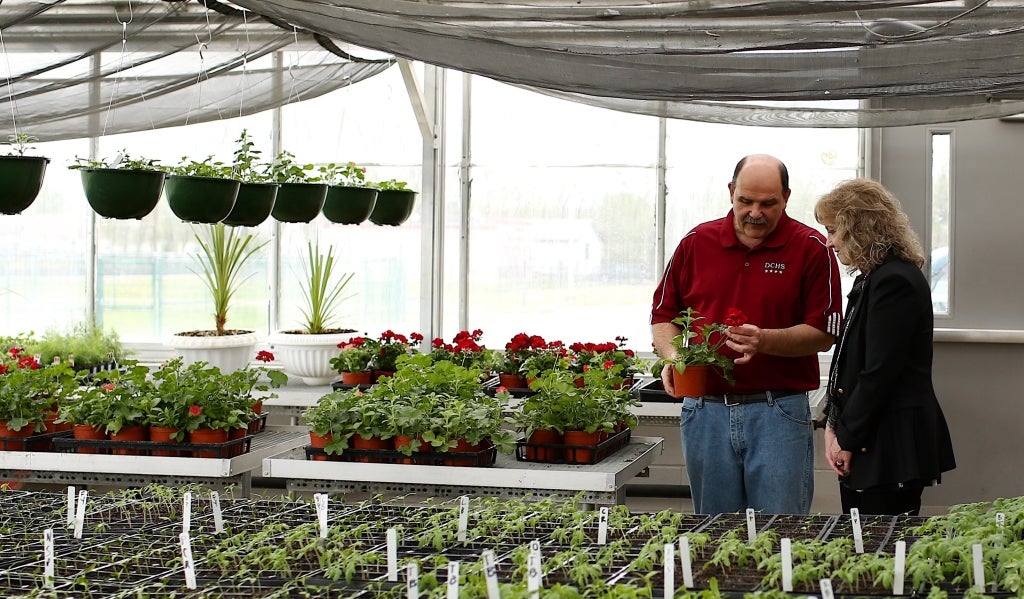
Filling the Gap
Three years ago, Indiana faced a growing challenge: a rise in agriculture teachers entering the field without traditional agricultural education training. The number of new teachers coming directly from industry — without university-based training — was steadily increasing. In fact, last year the ratio was 2 to 1, with twice as many teachers entering the field from industry as those coming from formal agricultural education programs.
Currently, the MI-BAT program is supporting 30 of the 42 new agricultural educators across the state, all of whom voluntarily participate. Although 30% of these new teachers are professionally trained in agricultural education, the remaining two-thirds are entering the field through alternative licensing methods. Of the teachers involved in the program, approximately 25% have come from programs like Purdue or Huntington’s agricultural education programs. However, 75% of these new educators were not originally agricultural education majors.
Huge acknowledges some of the best beginning teachers aren’t necessarily those with formal agricultural education backgrounds.
“The best beginning teachers aren’t always agricultural education majors; they just have a real knack for teaching,” he says. “They can be very successful in the classroom.”
This highlights the importance of looking beyond traditional qualifications and considering diverse teaching backgrounds as a means to fill the growing number of agricultural education positions.
The need for agriculture educators continues to grow, and the MI-BAT program plays a crucial role in helping new teachers develop skills like lesson planning, FFA management and classroom leadership. For many, their desire to teach comes from their own experiences in FFA, and MI-BAT helps ease their transition into the classroom.
Huge stresses the importance of recruiting and training non-traditional candidates to address the shortage of agriculture teachers. “We have to continue looking at that population to fill our agriculture teacher positions,” he says.
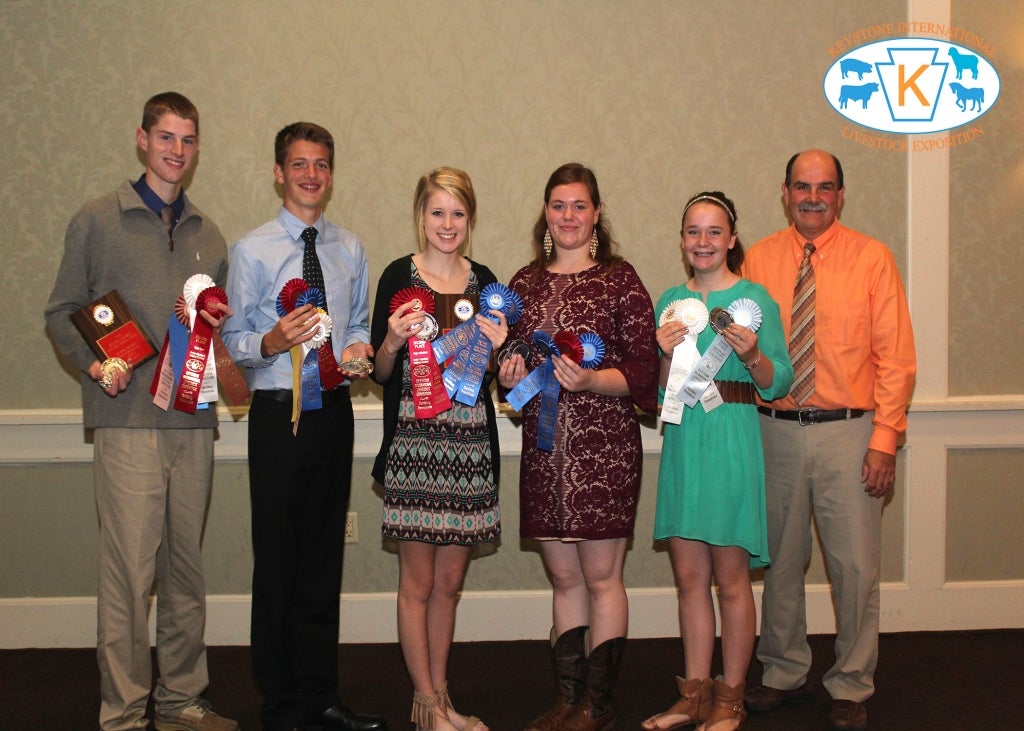
Supporting the Profession
For Huge, the most rewarding part of helping the MI-BAT program is, “keeping them in the profession,” he says. “This is the time of year these teachers are deciding if they want to stay in the profession.”
By talking to people who have been through these experiences, Huge notes many new teachers leave for two main reasons:
1. They feel like they don’t have enough resources or knowledge to keep going.
2. They feel overwhelmed, but don’t ask for help.
Huge notes many first-year teachers are in single-teacher agriculture programs, which can feel isolating. That’s where MI-BAT makes the difference.
“They know they can reach out to me or their mentor teacher,” he says. “Our sole purpose is to call them, email them — sometimes even talk them off the ledge after a hard day in the classroom.”
He also makes it a point to check in. “Before school’s out, I ask, ‘Did you enjoy this year? Are you coming back?’” he says. Sometimes the issue isn’t the profession; it’s the placement. “If it’s not the right school, I tell them to find somewhere else before giving up,” he adds.
Huge has done research to support the need for the Lily Grant and found half of agriculture teachers leave the profession within their first five years. When they stay for six to seven years, however, they’re much more likely to stick with it for the long haul.
With fewer new teachers staying in the profession long-term, supporting them early in their careers is more important than ever. “It’s about giving them the support and confidence to stay in the profession,” Huge says.
The MI-BAT program is showing results. Out of 32 mentored teachers, only two didn’t return for a second year. These individuals aren’t leaving the profession — they’re finding a different school to continue their impact. The remaining 30 are still teaching.
“That’s what I hang my hat on the wall for: turning things around and keeping young teachers in the classroom,” Huge says.
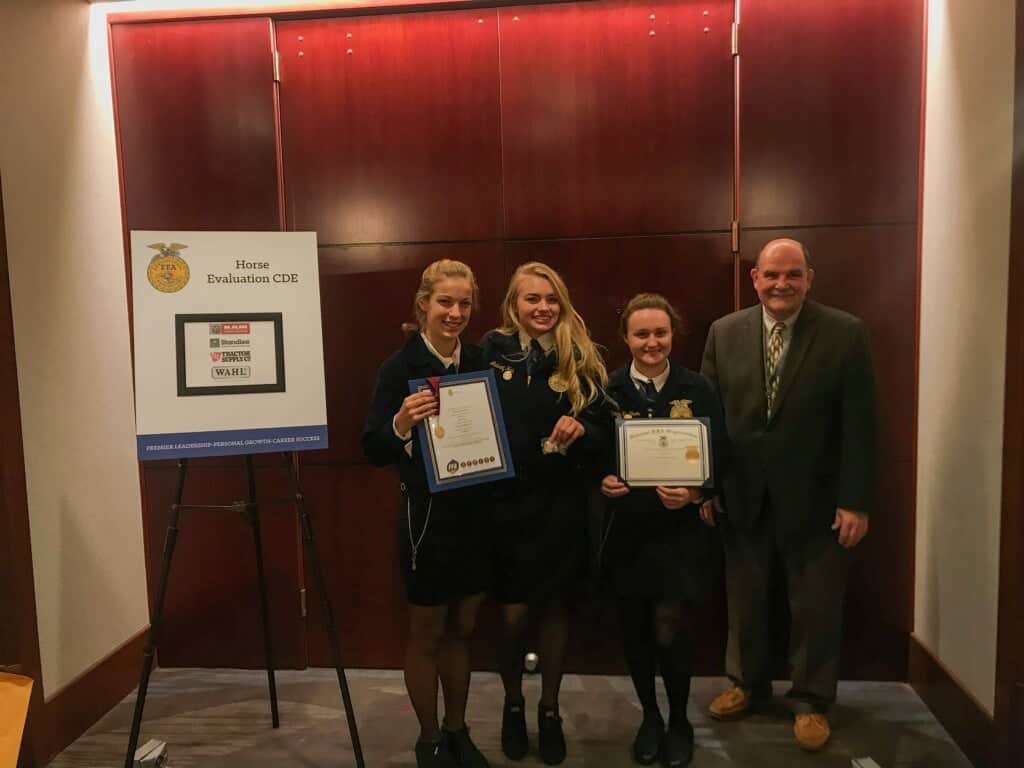
The Joy of Teaching
“If you want to make a positive impact on the lives of students, change students’ lives, and had a positive experience in FFA and agricultural education, then being an agricultural educator is the perfect career path for you,” he says.
Purdue University also offers a unique program for individuals who may decide to pursue a career in agricultural education later in life. The Boilermaker Track to Teaching (BTT) allows participants to take a total of seven classes throughout their first two years in the classroom to become fully licensed agriculture educators. For current students who haven’t yet completed their degree, Purdue’s program allows them to knock out one or two of those classes during their senior year.
When you choose to teach agriculture, you’re not just preparing students for a career — you’re living out the words, “I believe in the future of agriculture,” every single day.
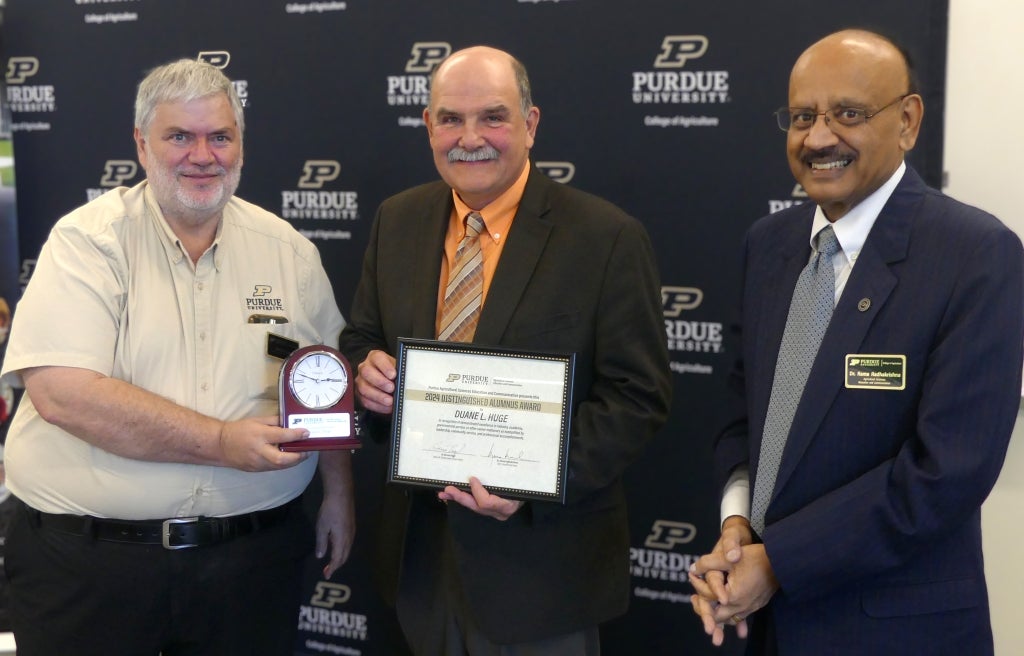
A Lifetime of Recognition and Achievement
Huge has been honored throughout his career for his exceptional contributions to agricultural education. His recognition began in 1990 with the NAAE National Region Young Teacher Award, which set him on the path to becoming a distinguished educator. He was also a finalist for the Indiana Department of Education’s Teacher of the Year Award in 2017, a rare achievement for a Career and Technical Education (CTE) teacher.
In 2023, Huge was named Indiana Ag Educator of the Year and received the Golden Owl Award, reflecting on the lasting impact he’s had on students’ lives. Other notable honors include:
- NAAE National Region Young Teacher Award (1990)
- Indiana FFA Distinguished Service Award (2017)
- State Finalist for the IDOE Teacher of the Year (2017)
- Indiana Ag Educator of the Year – Golden Owl Award (2023)
- Purdue University ASEC Distinguished Alumni Award (2024)
- NAAE Lifetime Achievement Award (2024)
These achievements are just a highlight of the incredible impact Huge has continued to have.
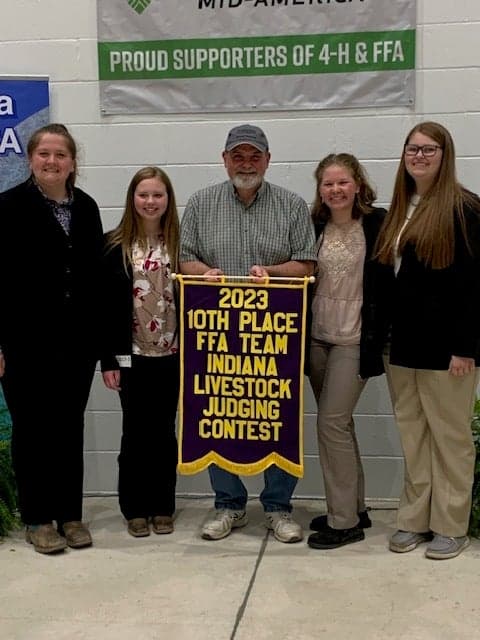
Leaving a Lasting Legacy
Huge has continued to illuminate the path for future agriculture educators, leaving a lasting impact on Indiana FFA through everything he does.
“We have a shortage of agriculture teachers,” he says. “It’s a career field we need more high school students to consider and pursue. The more people we have entering this profession, the more lives we can impact. With each new teacher, we bring in more positive influences and role models who will make a difference in the classroom and beyond.”
Huge’s unwavering dedication to agricultural education continues to inspire the next generation of teachers and students, ensuring the future of agriculture remains bright and full of opportunity.


